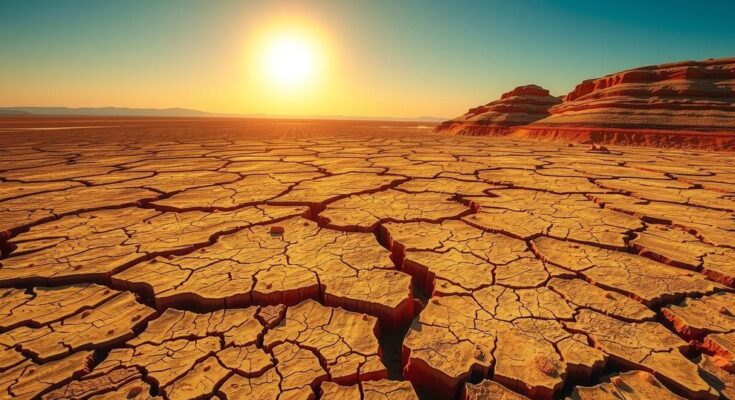The India Meteorological Department warns of an intense heatwave this summer, predicting more heatwave days across states like Uttar Pradesh and Odisha. With climate change exacerbating the situation, discrepancies in heat-related death tolls raise alarms about the public health impact. Preventative actions are deemed necessary to address this ongoing challenge.
The India Meteorological Department (IMD) has issued a warning concerning an intense heatwave expected this summer, impacting many regions of the country, according to the BBC. IMD head Mrutyunjay Mohapatra stated that various states, including Uttar Pradesh, Jharkhand, Chhattisgarh, and Odisha, may experience between 10 to 11 heatwave days, significantly higher than the usual average.
From April to June, most of northern, eastern, and central India, along with the plains of northwestern India, is anticipated to record 2 to 4 additional heatwave days compared to historical data. Typically, the country encounters 4 to 7 heatwave days during this period.
Last June, during what became the longest heatwave in history, Mr. Mohapatra warned of increasing frequency and intensity of heatwaves, stating that preventative measures were crucial to mitigate their impact. Heat-related incidents are the leading cause of weather-related fatalities, with the United Nations estimating approximately 489,000 annual deaths worldwide linked to extreme heat, although these figures are based on older data.
Despite soaring temperatures exceeding 40°C, the Indian health ministry only officially recorded 143 heatwave-related deaths last year between March 1 and June 20. Moreover, an NGO report, HeatWatch, identified a total of 733 heat-related deaths across 17 states, highlighting significant discrepancies between government records and actual fatalities.
This discrepancy likely undercounts deaths related to exacerbated chronic health conditions, increased air pollution, and other factors, potentially raising actual fatality figures into the tens of thousands. Similar patterns seen during the 2022 European heatwave, which resulted in 61,000 to 68,000 excess deaths, further underscore the urgent need for intervention.
More than half of the heatwave deaths, linked to climate change, may increase as global temperatures continue to rise. As the third-largest emitter of greenhouse gases and largest populous nation, India faces significant climate challenges. Mr. Mohapatra stated last year, “Human activities, increasing population, industrialisation and transport mechanisms are leading to increased concentration of carbon monoxide, methane, and chloro-carbons,” emphasizing the risk to future generations.
In summary, India is poised for another summer of intense heatwaves, predicted to affect multiple states with increases in heatwave days. The discourse highlights concerning discrepancies in heat-related mortality, underscoring the broader implications of climate change and human impact on the environment. The urgent call for preventative measures is underscored by the significant risks posed by extreme heat, which could lead to rising fatalities as global temperatures increase.
Original Source: macaonews.org




